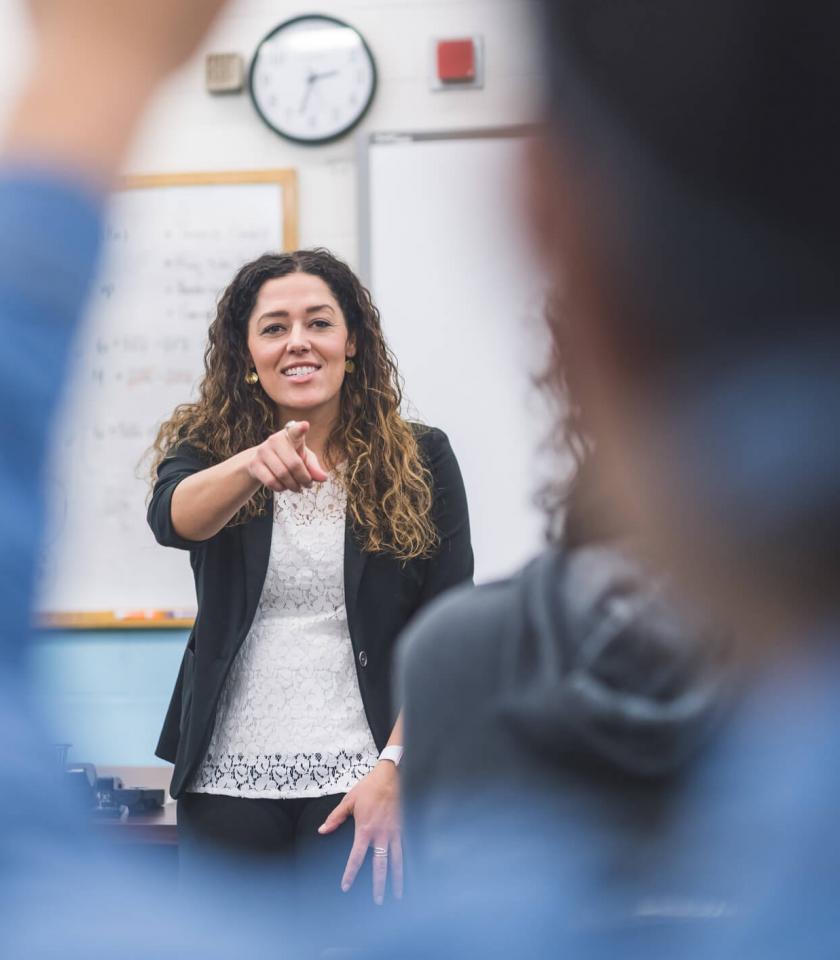Every CELTA course involves 6 hours of observed and assessed teaching practice (TP). The following words are the personal reflections of Francesco Greggio, who completed the CELTA at IH Milan in 2016.
TP can feel very intimidating at first, but there is one important point. Before anything else, students are people who want to learn, and they will gladly cooperate with you if you show them you are there to help them learn. Even the most inexperienced teacher is a much better speaker and expert of the language than the best student, so trainees should approach teaching with confidence in their skill and accept that while they will make mistakes. Those mistakes will almost never be so grave that their lesson will end up in complete failure.
As my tutor once told me after I had made a mistake that left me quite unsure about myself, CELTA trainees are still learning. They are allowed to make mistakes. So don't stress too much over what you could have done better and instead try to focus on what you did well, learn from those areas of excellence and try to apply the same techniques and ideas to the areas where you felt weaker or less effective.
Another useful bit of advice, in my opinion, would be to treat the class as a team with the teacher as their coach. This image is certainly not original, but it does depict the situation well. You, as a teacher, are not part of the team, but you do work together with the team towards a common goal: improving the skill level of the team's members. The teacher's role is not that of giver of knowledge – a book can provide the raw notions. The role of the teacher is that of "force multiplier"; their purpose is to assist the students in their learning process, a process that only they can undertake, and make it as efficient and as effortless as possible.
This, in my opinion, is best achieved by building the students' self-confidence through constant encouragement and cooperation. Students should always be praised for their successes and encouraged to keep going. Error correction must be a team effort where the only role of the teacher is to ensure that the error is indeed corrected in the end, but the correction itself should be left for the class, if at all possible.
Students must feel welcome and not judged, therefore a teacher should be very careful in choosing which words to use in pointing out mistakes or areas of improvement. Ultimately, a teacher should earn two things from the class they teach: their attention, through the technical skill and confidence of the teacher, and their respect by showing that they care about the success of the students and strive towards that goal.
Showing effort is immensely appreciated by the students, often on a personal level. Even simple gestures such as preparing hand-made diagrams and schemes or using non-standard or clearly adapted material can have a great effect, as they show that time and effort have been spent specifically for them.
So, to recap:
1. Don't try to be perfect. Perfection is not the domain of new teachers, and it's not the purpose of the course. So do not be obsessed by the imperfections in your lessons, but rather focus on applying the knowledge you have acquired during the input sessions. Trust your tutors to provide you with the knowledge you need to succeed and try to apply it to the best of your abilities. Results will follow.
2. Build positive rapport with your students by showing confidence and skill, but also personal interest in their learning process. Always encourage them, never diminish them, always try to be sensitive to their needs.
3. Demonstrate your passion for the job and your interest in their success by putting visible effort into your lessons. Anything that shows your commitment towards the class will be appreciated and will push the students to work better, as well as making the whole process of learning more enjoyable and less difficult.
4. Be humble. As I've already said, the teacher is not part of the team, but works together with it, so smugness and superiority only create a negative distance between teacher and students. This is sometimes not easy, but watching your own tone is essential. When correcting mistakes, pay attention to your tone and never let it become patronizing or condescending. If at all possible, offer students an explanation of why they made that mistake.


